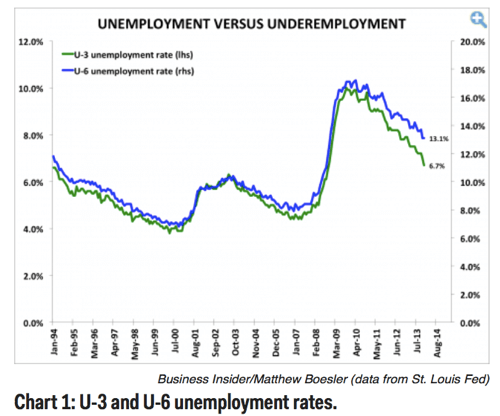Martin Luther King: Letter from a Birmingham Jail [King, Jr.]:
My Dear Fellow Clergymen: While confined here in the Birmingham city jail, I came across your recent statement calling my present activities “unwise and untimely.” Seldom do I pause to answer criticism of my work and ideas. If I sought to answer all the criticisms that cross my desk, my secretaries would have little time for anything other than such correspondence in the course of the day, and I would have no time for constructive work. But since I feel that you are men of genuine good will and that your criticisms are sincerely set forth, I want to try to answer your statement in what I hope will be patient and reasonable terms.

 Via Matthew Boesler, Jan Hatzius:
Via Matthew Boesler, Jan Hatzius: